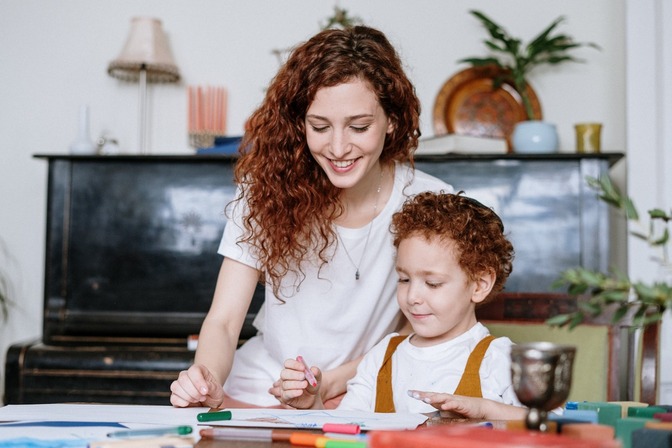As parents, we want our children to grow up happy, healthy, and well-adjusted. One significant area of attention is in the early child’s social and emotional development, which helps children understand how to interact with others, how to clearly convey their feelings, and a sense of themselves. It’s not just about making friends; it’s the beginning of establishing a stronghold in emotional intelligence and resiliency in meeting the ups and downs of life. 10 Strategies for Social and Emotional Learning in Early Childhood can play a crucial role in fostering these essential skills.
Understanding of Social and Emotional Development in Early Childhood
Social and emotional development are the basic skills, which involve getting into the other person’s shoes; control over emotions; and social interaction. As your child will grow, he or she reaches various developmental milestones that indicate their growth in these areas. For instance, toddlers start to express emotions, and they even might demonstrate sympathy towards their tearful playmate to comfort him.
Understanding these skills will allow you to guide your child’s growth the proper way. Here are ten powerful ways of developing social and emotional development in early childhood:
-
Encourage Playtime
Play is a good teacher! Playing activities are used to help children explore their feelings and introduce them to social skills. There are team play activities like building blocks together or simple board games that involve sharing, cooperation, and solving among themselves.
-
Model Emotional Intelligence
Children learn from their parents. Showing your child how to act out emotions in a healthy manner teaches them well about emotional control. Share with your child your feelings and how you handle them: sometimes happy, sometimes sad, or frustrated. This is an excellent way to model for them, shaping what they might do.
-
Safe Supportive Environment
A nurturing and secure home environment is imperative for child emotional development. One can develop a room in such a way that the child feels free to express their selves without judgment. In this way, encourage them to open up on every little feeling that pops into their minds. This fits within attachment theory, which states that the early development of a child is founded upon having securely attached relationships.
-
Promote Independence
Encourage her to have choices or solve problems on her own. It will help her develop a good self-esteem and gain experience in how to resolve conflicts. For example, allow her to choose the apparel for the day or between the two snacks. These decisions determine independence and personal growth.
-
Role Play Empathy
Role-playing can be a very entertaining way to teach empathy. Develop scenarios in which your child can understand how others feel while pretending. For instance, take turns acting out different emotions or situations. The technique helps develop empathy and helps children manage better their relationships with peers.
-
Encourage Expressive Arts
Art, music, or dance can help them bring out their emotions. Engage your child with paper and pencils or a piano and other instruments. These can help your child put his feelings into expressions, thus also helping him develop self-esteem.
-
Establishment of Routines
Children like routine as this will give them a feeling of security. Create a daily routine which might include playing, meal times, and times of quiet. These can make them feel safe and ready for school.
-
Teach Problem-Solving Skills
Facilitate the development of resilience in children by offering them guidance through struggles. When they fail to go forward, encourage them to think of possible solutions rather than giving up. That helps develop problem-solving skills and boost confidence for them.
-
Encourage Positive Relationships
Involvement in friendships is sociocultural and necessary for social growth. Plan play dates, games, and group activities to encourage interaction between your child and his peers. The act of teaching them to share and cooperate while doing this will help to socialize them.
-
Teach Awareness and Calmness
Taught mindfulness skills, including simple breath work or yoga to your child. These activities can be helpful to him in dealing with his feelings and it can be such a tremendous basis for positive behavior support. These also arm your child with powerful tools for stress control as he grows up.
Conclusion
Of course, this social and emotional development at an early age will set a robust foundation for your child and ensure that they are going through the world in a confident and empathetic manner. Utilize these ten tremendous parenting strategies to help your child develop the skills necessary for healthy interaction with the world.
Remember, every small step counts!
FAQs
Q1: What is social and emotional development in early childhood?
Early childhood social and emotional development is essentially the process through which children learn to relate to others, share emotions, and develop a sense of self. It entails skills such as sharing, empathy, and emotional regulation. All these are crucial for general well-being and success later in life.
Q2: Why should my child care about social and emotional development?
This development helps the child build relationships and manage emotions and navigate social situations. Good social-emotional skills are usually combined with good grades and better healthy relationships and mental health in the long term as well.
Q3: How would I know if my child is really socially and emotionally developing well?
Evidence would include play with others, expression of emotion verbally, empathy towards peers, and overcoming challenges. When you suspect your child has a problem with development, it may be wise to ask the opinion of a pediatrician or child psychologist.
Q4: What if my child has problems with socialization?
Normal children will always have problems with social interaction. Encourage their play with friends, model appropriate social behaviors, and provide opportunities for your child to practice these skills. If the struggles persist, consult a child psychologist or counselor.
Q5: What’s the proper age to begin focusing on the social-emotional development of my child?
Start as early as possible! From infancy, you could encourage bonding and emotional expression. As your child grows, you can then give way to more structured activities to encourage social skills and emotional understanding.
In focusing on these aspects of early childhood education, you are really laying a setting for your child’s success and happiness. Every little effort you make helps build them into well-rounded individuals. Happy parenting!




